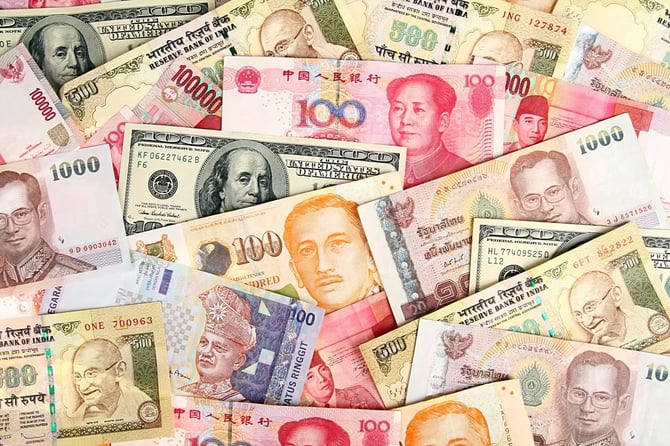China's Yuan is Collapsing Against the Dollar

China's currency, the yuan, is taking a hit against the dollar, recently dropping to a 16-year low of 7.35 yuan to the dollar. This dip led China's central bank to address "too much speculation" affecting the yuan's value.
The rapid depreciation of the Chinese currency is posing multiple questions for analysts. China is still a significant exporter of manufacturing goods with a trade surplus, creating a strong demand for its currency. That should mean stronger, not weaker, yuan.
Some economists contend that of the many traders and investors are placing their bets not on what China's exports and trade surplus have been but on where they are heading, which is downhill.
Another factor that moves currencies is the interest rate spread, the difference between China's and U.S. interest rates. It determines the direction of capital flows between the two countries.
What does this mean for me?
Typically, when a country boosts its interest rates, investors are keen to dive in, while they tend to back off when rates drop. Right now, U.S. interest rates are climbing, while China's are dipping.
Why the difference? The U.S. economy is standing strong while China's shows signs of strain. This has led to contrasting strategies from both nations' central banks: the U.S. Federal Reserve is getting stricter, while the Peoples Bank of China is loosening up. As a result, money is flowing from the yuan to the dollar, further driving down the yuan's value.
More News
.webp)
US Dollar Faces Biggest 6-Month Drop in Half a Century
5 months ago
.webp)
Dollar Slips to Three-Year Low as Trump Eyes Early Fed Appointment
5 months ago
.webp)
AI-Powered Trading Bots Bring a New Kind of Threat
6 months ago
.WEBP)
Euro Value Surges as Markets React to Tariff Shock
8 months ago

Euro’s Slide: What’s Behind the Drop and What’s Next?
11 months ago

Sterling Gains Against Euro as Central Banks Move Apart
11 months ago

Euro Remains Steady Amid Tariff Threats
1 year ago

Euro Stays Under Pressure Amid Economic and Political Shifts
1 year ago